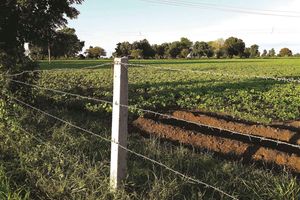
Court rules that the doctrine of adverse possession does not apply where land is public, trust land or government-owned.
The Environment and Land Court has ruled that the doctrine of adverse possession does not apply where land is public, trust land or government-owned.
Justice Stephen Kibunja, sitting in Mombasa, also said that public land should not be subject to a claim of adverse possession under Section 41 of the Limitation of Actions Act.
He made the ruling as he ordered squatters on land belonging to the Technical University of Mombasa (TUM) to vacate and remove all structures on the land within 60 days.
The judge also ruled that if the squatters fail to vacate, TUM is free to evict them and demolish all their structures at their (the defendants') expense under the supervision of the Officer Commanding Makupa Police Station (OCS), Mombasa.
Justice Kibunja ruled that the defendants' illegal occupation of the land, which is public property belonging to TUM, could not extinguish the institution's rights and interests in the land.
The court further ruled that the defendants' argument that they have acquired protectable rights to housing over the land is not valid.
“The plaintiff (TUM) has demonstrated vide notices issued by its predecessor, Mombasa Polytechnic, on November 1, 2005 and November 4, 2004 that the defendants’ (squatters) occupation and possession of the land was adverse to the rights and interest of the university as a registered owner,” ruled Justice Kibunja.
Justice Kibunja also ruled that the defendants, having occupied the land with the permission or consent of the owner as evidenced by the payment of receipted ground rent at some point in time, remained on the land on the same terms until they were asked to vacate, which they refused to do, prompting the filing of the suit.
“They should vacate from the land to enable the plaintiff put the land to the intended use. The court finds the defendants are therefore trespassers on the land,” ruled the judge.
The judge also said that the defendants’ actions of trespassing on the land should be permanently stopped.
“The plaintiff is therefore entitled to an order of eviction as well as a permanent injunction restraining the defendants from remaining on the land,” said Justice Kibunja.
The court also ruled that the fact that the defendants were paying ground rent indicated that they were occupying the land with the permission or consent of the owner and could not now claim that their occupation was adverse to the registered owner's title.
TUM had told the court that it was the registered owner of a 4.26 acre parcel of land which it acquired on February 3, 1953 in the name of its predecessor, the Mombasa Institute of Muslim Education.
It further told the court that it changed its name and status several times from Mombasa Institute of Muslim Education to Mombasa Polytechnic University College and later to Technical University of Mombasa.
On January 30, 2013, in accordance with the Universities Act 2012, it obtained a charter to operate as a full-fledged public university and all rights, liabilities and assets of Mombasa Polytechnic University College were automatically transferred to TUM.
It argued that the defendants had encroached on the land, carved out a portion and commenced construction of a building.
TUM also argued that it had been the registered owner for over 56 years and that the defendants had no legal rights to the land.
For their part, the defendants denied the university's ownership of the land.
They denied any sale of the land between the University and the Mombasa Institute of Muslim Education and stated that they were not privy to the contract.
The defendants claimed that they were not trespassers but had built houses on the land years ago.
In their counterclaim, the defendants said they had acquired title to the land by adverse possession, having settled on the land for an uninterrupted period of 40 years.
They argued that the plaintiff could not seek to demolish their houses without compensation and prayed for judgment against the university.
The defendants' witness confirmed that they had been paying rent to the Muslim Institute, but that they had stopped paying in 1961 after the government took over the Institute and that no one had asked them to pay rent since then.











